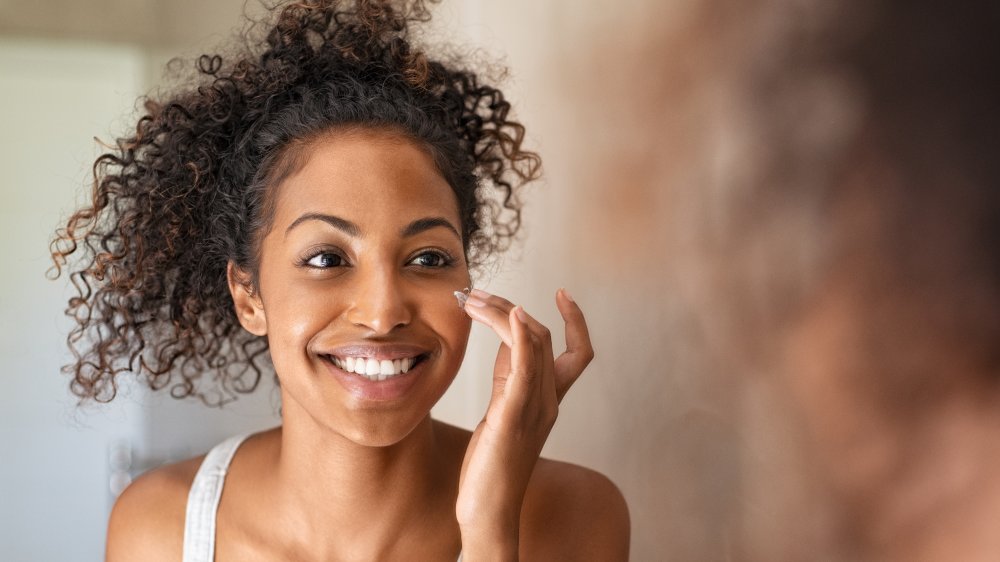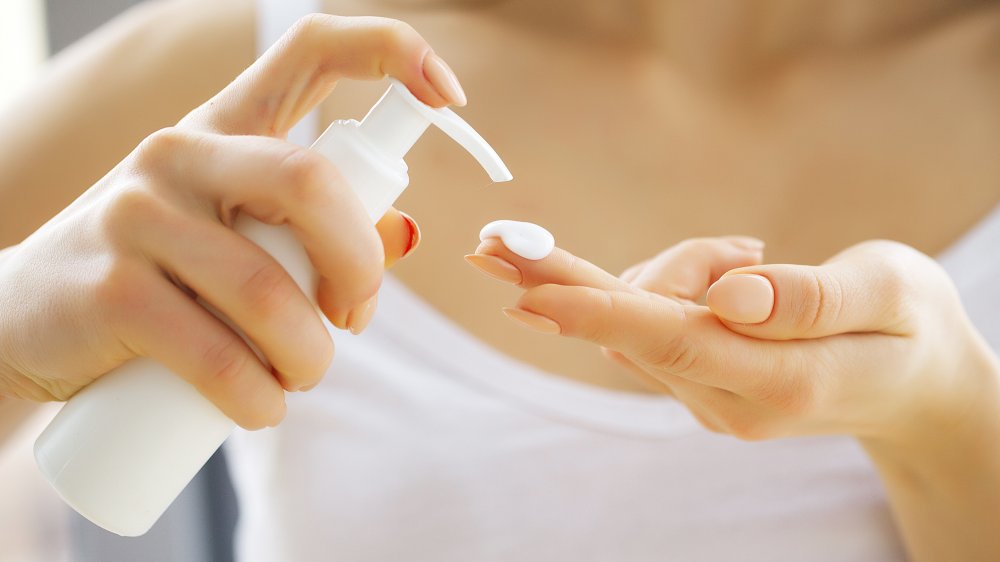When You Use Retinol Every Day, This Is What Happens To Your Face
Retinol is one of dermatologists' favorite products to recommend to clients, according to Elle. It can help with everything from wrinkles to acne to fine lines. Retinol is a vitamin A derivative that not only exfoliates to reveal smoother skin beneath, it actually teaches your skin to produce more collagen. While doctors can prescribe retinoic acid, retinol's prescription-strength relative, many dermatologists agree that over-the-counter retinol can be just as effective.
However, it can be difficult to incorporate retinol into your skincare routine. Even over-the-counter retinol products can be strong enough to cause redness, peeling, and breakouts, especially during the first few weeks (via InStyle). There's even a phrase to describe your skin's initial reaction to using it: the retinol uglies. Even so, many dermatologists encourage their clients to use it every day. When used properly, retinol can seriously change the way their skin looks.
You shouldn't use retinol every day when you first start
Over-the-counter retinol products can be a great option for retinol newbies, since they're gentler than prescription strength retinoic acid. At first, a pea-sized amount of retinol should be applied to the face once or twice a week, allowing skin time to adjust to its effects. Retinol should also be applied at night, since sunlight will degrade the retinol and minimize its effects. Plus, since we sweat and touch our skin less while sleeping, it allows the retinol to work on your skin uninterrupted.
Over time, your skin can tolerate products with a higher retinol amount. Until you work up to a stronger cream or a daily habit, there are things you can do to keep your skin happy while adjusting to retinol. It's important to use plenty of sunscreen, since some dermatologists believe your skin can become more sensitive to sunlight while using retinol. Frequent use of moisturizer can offset any redness or peeling.
Retinol can be used every day but needs time to work
After you've built up your skin's tolerance to retinol, it's perfectly safe to use every day. Even users in their 20s can see improvements to their skin when retinol is part of their daily routine. However, you might want to cut down on how often you use retinol during the winter; as the cold weather dries your skin, it might be less tolerant to the frequent use of retinol it easily tolerated during the summer (via The Zoe Report).
Once you start using retinol, your skin will start looking smoother, and you'll have fewer breakouts and clogged pores. It will take longer to see smaller pores and skin tone improvements, and it could take much longer to see improvements for fine lines. According to Harvard Health Publishing, it will take at least three to six months before users see improvement to wrinkles. But it's important not to quit. Be patient, and your skin will show major results.


